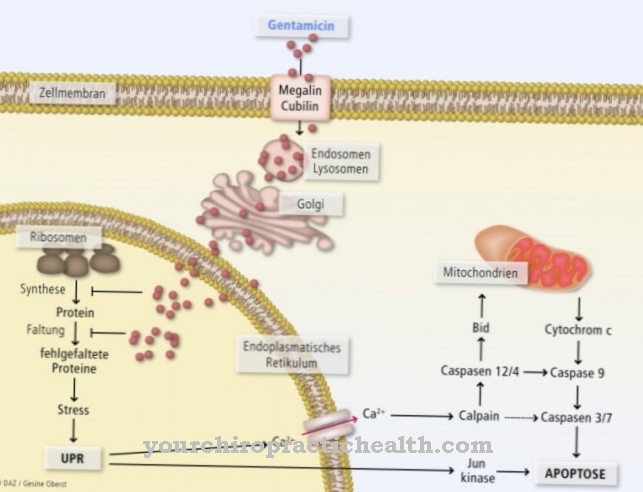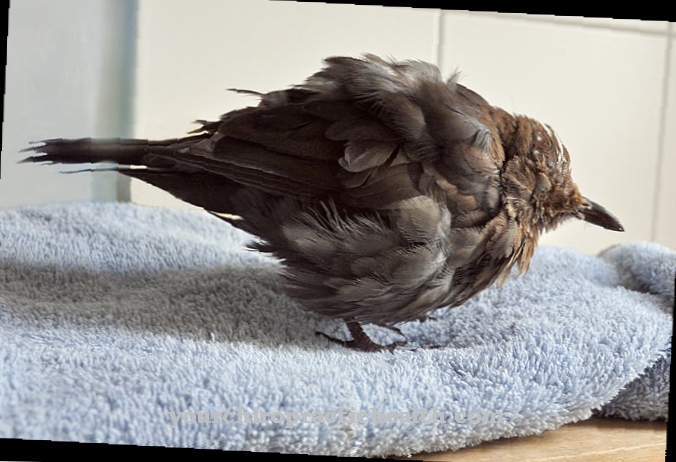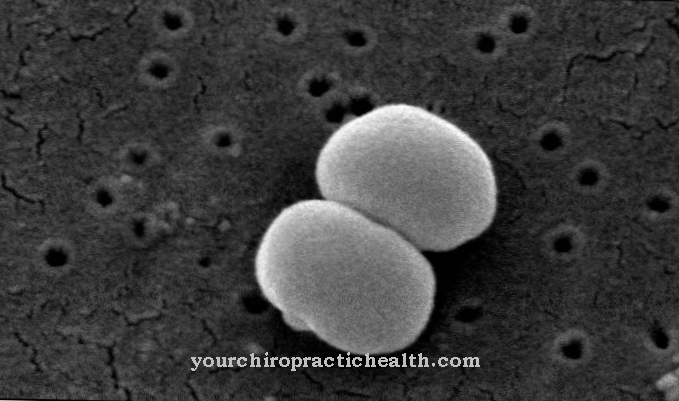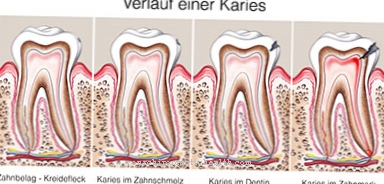Nasal drops have a decongestant effect and are primarily used for colds and allergies that cause the airways to swell and make breathing difficult. Like nasal sprays, nasal drops are supposed to help. In addition, however, they often also support the healing of the irritated and irritated mucous membranes.
What are nasal drops?

There are many possible reasons that make it difficult for us to breathe due to uncomfortable swellings in the sinuses. The two most common causes, however, are colds and allergies.
In addition to nasal sprays, nasal drops are often used to remedy the situation. They are provided with various active ingredients, which in most cases have a decongestant and calming effect. This ensures that the person affected can breathe deeply again. In addition, the drops help with various ingredients that the mucous membranes are protected and soothed.
These are usually very badly affected by the cold and allergy processes, which can be aggravated by blowing your nose as well as by using the nose drops too often. In contrast to nasal sprays, nasal drops are not “pumped” into the nose, but are usually dripped into the nose using a pipette.
Nasal drops for runny nose & nasal congestion
Nasal drops show different types and modes of action, which on the one hand are aimed at the possible complaint that may be present. On the other hand, nasal drops are also differentiated by their composition and concentration.
In most cases, at best, through medical or pharmaceutical advice (e.g. from a trusted pharmacist), a type of nasal drops is selected that is suitable for the present complaint. Depending on the age of the patient and the concentration of the agent, the nasal drops can be used three to four times a day on average in a dosage of around three drops per nostril.
Of course, you should definitely consider the product's own instructions for use, which are enclosed with all nasal drops. Overall, however, it is medically recommended that you should not use nasal drops permanently or over a long period of time.
Herbal, natural & pharmaceutical nasal drops
Nasal drops are available in many different types. A distinction is made between five different types of nasal drops, four of which are considered medicinal products.
These include all chemical agents that have a decongestant effect as well as agents that contain cortisone, antihistamine or cromoglicic acid. The fifth type of nasal drop includes all natural, homeopathic and herbal compositions, such as drops made from and with sea water, herbal mixtures and essential oils.
The difference between natural and chemical agents is that natural compositions are less aggressive or are intended to care for and heal the damaged mucous membranes. Seawater drops, for example, have the main effect of keeping the mucous membranes moist and supporting rapid healing when they are irritated, dry and cracked.
Mixtures with herbs such as thyme or with essential oils can, however, make breathing easier, even with swollen mucous membranes. However, these only have a very limited effect on decongestant. Therefore, in the case of severe complaints, chemical-pharmaceutical agents often have to be used.
However, there are now also drops that include natural ingredients in the recipes in order to make the effect more gentle. There are also gently dosed drops for children, allergy sufferers and sensitive people.
You can find your medication here
➔ Medicines for colds and nasal congestionRisks & side effects
So pleasant and easy to use Nasal drops in the event of a complaint, if it is used for a longer period of time, these attack the mucous membranes of the body. It is therefore recommended that nasal drops should not be used for longer than a maximum of ten days at a time, even in the event of a serious illness or allergy.
In the event of additional complaints such as severely damaged and irritated mucous membranes, you should stop using it immediately and consult a doctor. You should also discuss combinations of different products with your doctor or pharmacist, even if they are natural products or nasal ointments. Because unwanted interactions can also represent a risk that should not be underestimated.












.jpg)

.jpg)




.jpg)


.jpg)





